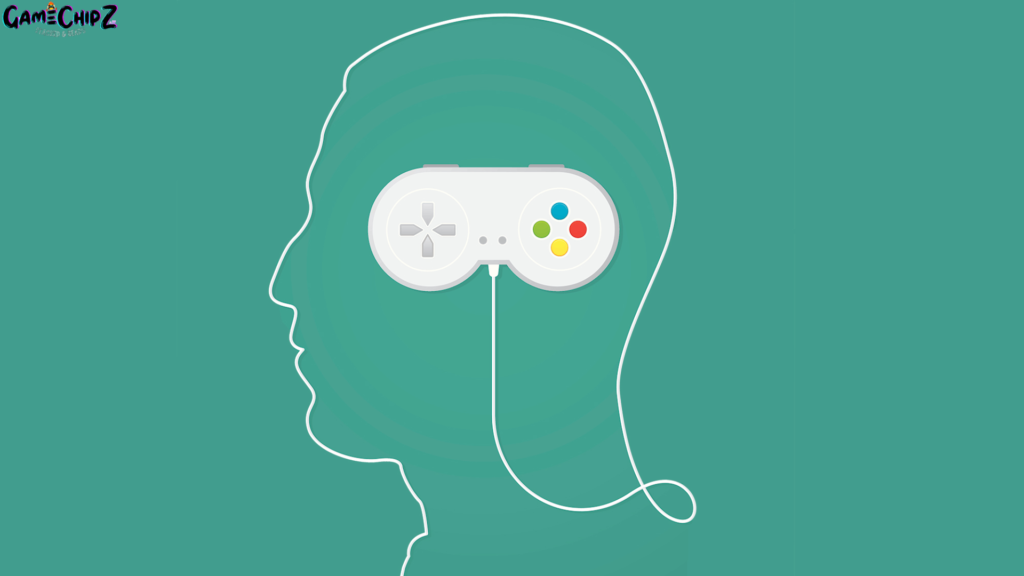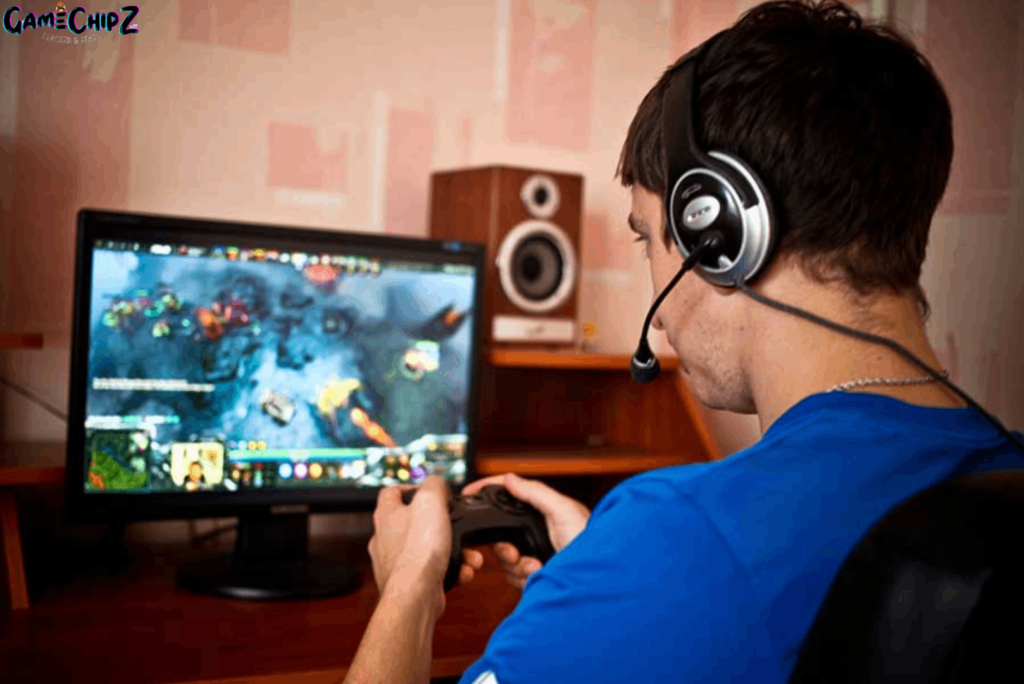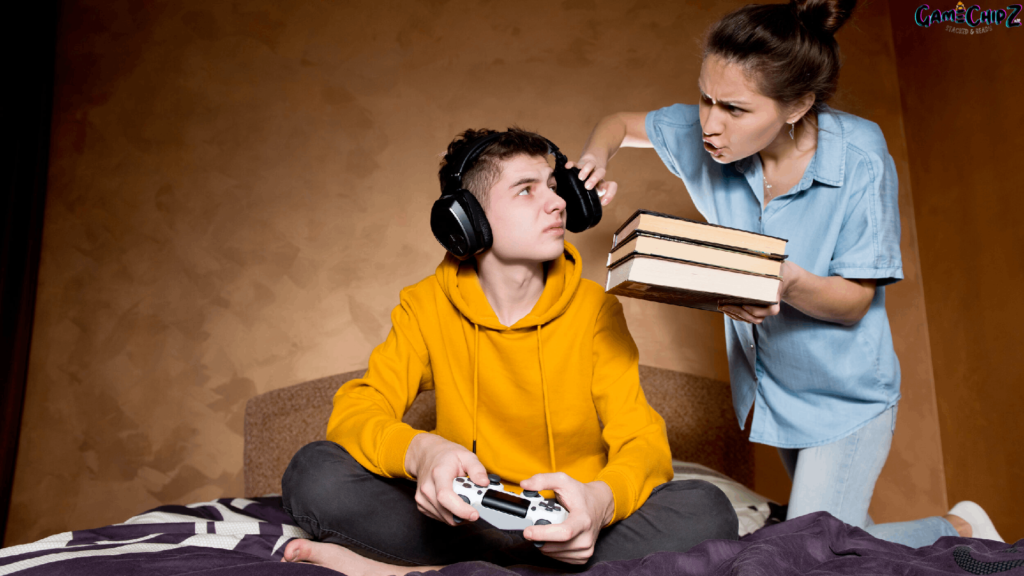In today’s digital age, gaming has become a dominant force in entertainment, captivating millions across the globe. While for many, gaming serves as a fun hobby or a way to unwind, there’s a darker side that is often overlooked—game disorder. This condition, recently recognized by the World Health Organization (WHO), goes beyond casual gaming and delves into an addictive behavior that can wreak havoc on one’s mental, physical, and social well-being.
But what exactly is game disorder? And how does something that starts as harmless entertainment spiral into a serious problem? As gaming becomes more immersive and accessible, understanding this disorder is essential. Whether you’re a gamer or a concerned loved one, the rising prevalence of game disorder demands attention and, more importantly, a solution.
What Is Game Disorder?

At its core, game disorder refers to a pattern of gaming behavior characterized by a lack of control over the time spent gaming, an overwhelming priority given to gaming over other interests, and a continuation or escalation of gaming despite negative consequences. This isn’t just playing for hours on a rainy Sunday; it’s a compulsive cycle that interferes with daily life.
The World Health Organization officially classified game disorder as a mental health condition in 2019, defining it as a persistent gaming behavior that affects personal, social, or professional functioning. The criteria for diagnosis include impaired control over gaming, increased priority of gaming over daily activities, and the continuation of excessive gaming despite clear negative outcomes. These patterns typically need to persist for at least 12 months to warrant a formal diagnosis, though severe cases may require less time.
It’s important to distinguish between passionate gamers and those suffering from game disorder. Many people enjoy gaming for hours on end, but they can still pull away when necessary, meet their obligations, and maintain relationships. Game disorder, on the other hand, consumes the individual, often leading to neglect in other areas of life—work, studies, and even personal hygiene.
So, who’s most at risk? While anyone can develop game disorder, it’s more commonly seen in younger individuals, especially teenagers and young adults, who may struggle with emotional regulation, social interaction, or have underlying mental health issues. The allure of gaming, with its built-in rewards and immersive worlds, can be particularly strong for those seeking an escape from reality.
The Impact of Game Disorder

The impact of game disorder stretches far beyond the screen. While the immediate effects may seem subtle, they can quickly snowball into more severe issues, affecting multiple aspects of a person’s life.
Mentally, game disorder can lead to heightened stress, anxiety, and even depression. The constant need to be online, chasing after the next in-game achievement, creates an emotional rollercoaster. This can become particularly dangerous when gaming is used as a coping mechanism for real-life problems, leading to an endless loop where the lines between the virtual and real worlds blur. Over time, this relentless cycle can damage one’s emotional health, leaving individuals feeling isolated and trapped in their gaming habits.
Physically, the effects are just as concerning. Prolonged gaming sessions contribute to a sedentary lifestyle, which can lead to problems such as weight gain, poor posture, and chronic pain, particularly in the back, neck, and wrists. Sleep disorders are also common among those suffering from game disorder, as players often sacrifice rest to continue gaming. Eye strain and headaches from constant screen exposure only add to the list of physical complaints.
Socially, the disorder drives a wedge between gamers and their loved ones. Friendships, romantic relationships, and family connections can erode as gaming takes precedence over real-life interactions. Many sufferers also experience a drop in academic or career performance, as they lose the motivation to focus on anything other than their gaming environment. The drive to “win” in the virtual space often results in significant losses in real life.
These impacts, though varied, are severe. Ignoring the warning signs can lead to long-term consequences that affect every corner of a person’s life, from their health to their relationships and their future.
Signs and Symptoms

Recognizing the signs of game disorder can be tricky, especially since gaming is such a common pastime. However, there are certain red flags that set problematic gaming apart from a healthy hobby. One of the most telling signs is preoccupation with gaming—when a person spends a significant amount of time thinking about games, planning their next session, or reliving past gaming experiences, even when they aren’t playing.
Another major symptom is loss of control. This occurs when a gamer is unable to reduce the time spent playing, even after trying to cut back. They may promise to play “just one more hour” but find themselves glued to the screen long after. Withdrawal symptoms, like irritability, anxiety, or sadness, can also emerge when gaming is restricted or stopped altogether, further reinforcing the urge to play.
Additionally, those suffering from game disorder tend to neglect important responsibilities. Whether it’s missing work or school, skipping meals, or sacrificing sleep, the need to game often overrides other essential tasks. This can lead to a decline in personal hygiene, health issues, and strained relationships.
It’s important to differentiate between heavy gaming and game disorder. Many people game for long periods without it becoming a problem. The key difference lies in the impact—when gaming starts to interfere with real-world obligations and well-being, it crosses the line into disorder territory.
For loved ones, the warning signs can be subtle at first, but over time, they become more noticeable. A once energetic person might seem increasingly withdrawn or agitated. Social interactions diminish, grades or work performance drop, and conversations about anything unrelated to gaming become rare. These are all signs that gaming has shifted from an enjoyable activity to a compulsive one.
How to Recover from Game Disorder

Recovering from game disorder isn’t a simple “quit cold turkey” process. It requires a combination of self-awareness, professional help, and lifestyle changes. The first, and arguably most important, step is acknowledging the problem. Once someone realizes that gaming has taken over their life, they can begin working toward a healthier balance.
For many, seeking professional help is essential. Therapists specializing in behavioral addictions can offer Cognitive Behavioral Therapy (CBT), a proven method to help individuals manage their gaming habits by identifying and changing unhealthy thought patterns. Group therapy or support groups for gamers may also be effective, offering a safe space to share experiences and challenges with others facing similar issues.
Aside from therapy, adopting new lifestyle changes is key to recovery. Establishing limits on gaming time is a good start, but it’s equally important to fill the time previously spent gaming with other rewarding activities. This could mean picking up hobbies, engaging in physical exercise, or reconnecting with friends and family. Shifting focus to real-world achievements, rather than virtual ones, helps build a sense of purpose outside of the game.
Setting boundaries around gaming can also help. Using time-management tools or apps that limit screen time can prevent endless gaming sessions. Many gamers find it helpful to schedule specific times for gaming while prioritizing other daily responsibilities like work, school, or social commitments. It’s about regaining control and ensuring that gaming remains just one part of a balanced lifestyle.
Equally crucial is the support from loved ones. Family and friends play a significant role in helping someone overcome game disorder. Encouraging healthy habits, setting shared goals, and maintaining open communication can create a positive environment for recovery. Gamers shouldn’t feel judged or blamed; instead, they need understanding and encouragement throughout their journey.
For those who’ve successfully recovered, the road ahead involves staying mindful. Relapses can happen, but with the right strategies in place, it’s possible to keep gaming in check without letting it take over again.
Preventing Game Disorder

Prevention is always better than cure, and when it comes to game disorder, adopting healthy gaming habits early on can make all the difference. One of the most effective ways to prevent excessive gaming is to set clear time limits. Gamers should aim to balance their screen time with other activities, whether it’s spending time outdoors, socializing, or engaging in hobbies that don’t involve a screen.
Parents and guardians can play a huge role in preventing game disorder among younger players. Utilizing parental controls to limit gaming time or restrict certain content is a practical step in managing a child’s exposure. But beyond controls, it’s crucial to have open conversations about the potential risks of excessive gaming. Helping kids understand the importance of balance and offering alternative activities can divert them from becoming too attached to their screens.
Building self-awareness is another critical factor. Gamers should learn to recognize when they’re gaming to avoid real-life problems or escape stress. Mindfully questioning why they’re reaching for the controller can prevent gaming from becoming a crutch. By being more aware of their emotional state, gamers can better manage how they interact with games and limit the potential for it to evolve into something more problematic.
For gamers of all ages, education and awareness are essential tools in preventing game disorder. Gamers and their families should be aware of the early warning signs, know when gaming is becoming more than just a hobby, and understand when to seek help. Resources like online communities or workshops can help spread knowledge on how to maintain a healthy relationship with gaming.
Ultimately, it’s about enjoying the virtual world without losing sight of the real one. A healthy gaming lifestyle means having clear boundaries, taking breaks, and knowing when to step away to focus on other important areas of life.
Conclusion
Game disorder is more than just a buzzword in today’s gaming-centric world—it’s a serious issue that can deeply affect one’s mental, physical, and social well-being. As gaming continues to evolve, offering more immersive and engaging experiences, the risk of falling into unhealthy habits increases. Recognizing the signs early, understanding the potential impact, and taking proactive steps to recover are essential in combating this disorder.
For those who might be struggling, recovery is possible with the right support system and professional guidance. By setting boundaries, practicing healthy habits, and seeking help when necessary, gamers can regain control of their lives while still enjoying the virtual worlds they love.
At the end of the day, it’s all about balance. Gaming, like any other hobby, should enhance life, not consume it. So, whether you’re a gamer, a parent, or simply someone concerned about a loved one, remember: it’s never too late to step back, reflect, and make changes for the better.
FAQ
What is gaming disorder?
Gaming disorder, as defined by the World Health Organization (WHO) in the ICD-11, is characterized by a pattern of gaming behavior that leads to significant impairment in personal, social, educational, or occupational functioning. This disorder manifests through impaired control over gaming, prioritizing gaming over other activities, and continuing to game despite negative consequences.
What are the symptoms of gaming disorder?
Common symptoms include, Preoccupation with gaming, Withdrawal symptoms when not playing, Increased tolerance (needing to spend more time gaming), Unsuccessful attempts to reduce gaming, Loss of interest in other activities, Continued gaming despite problems caused by it, Deceiving others about gaming habits.
How prevalent is gaming disorder?
Estimates suggest that between 1% and 10% of gamers may experience gaming disorder. The variation in figures arises from differing diagnostic criteria used in studies.
What causes gaming disorder?
The causes are multifaceted, involving psychological, neurological, and behavioral factors. Psychological issues such as anxiety and depression can contribute, while neurological studies indicate abnormal dopamine release similar to substance addiction. Behavioral theories suggest an imbalance between the activation and inhibition systems in the brain may lead to compulsive gaming.
How is gaming disorder diagnosed?
Diagnosis typically involves a mental health professional assessing the individual’s gaming patterns against established criteria from the DSM-5 or ICD-11. Symptoms must be present for at least 12 months and result in significant impairment in daily functioning.
What treatments are available for gaming disorder?
Effective interventions include cognitive-behavioral therapy (CBT), group counseling, and other forms of psychotherapy. Some individuals may benefit from medications if they have co-occurring mental health conditions like anxiety or depression.
Is gaming disorder considered a mental illness?
There is ongoing debate among researchers regarding its classification. While some view it as a behavioral addiction akin to gambling disorder, others argue that it may not fit traditional definitions of addiction due to the absence of financial stakes.
What should I do if I think I have a problem with gaming?
If you or someone you know is experiencing symptoms of gaming disorder, it is important to seek help from a healthcare provider or mental health professional who can provide appropriate support and treatment options.


